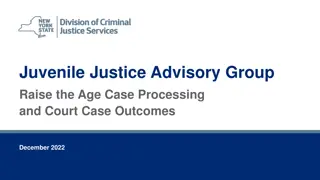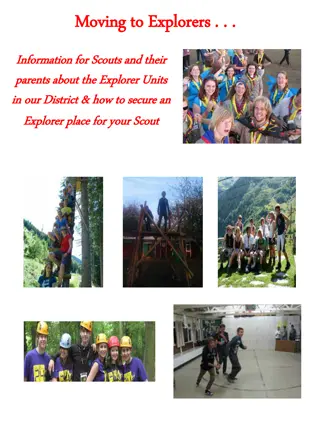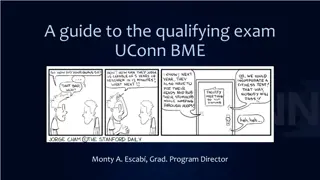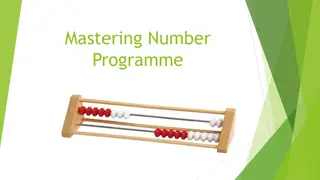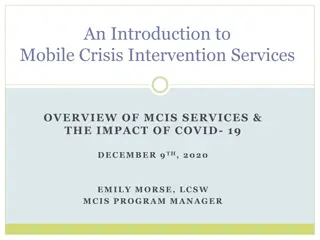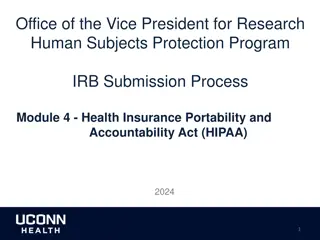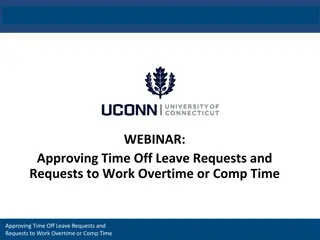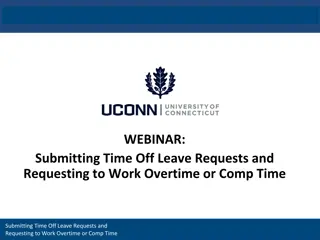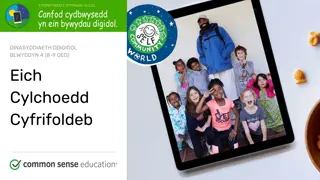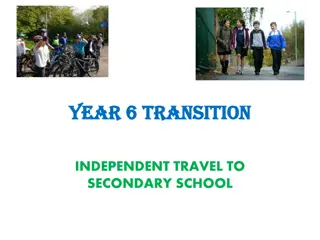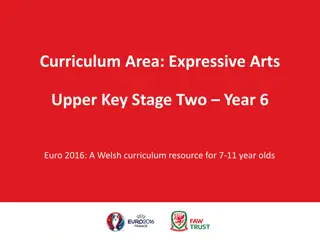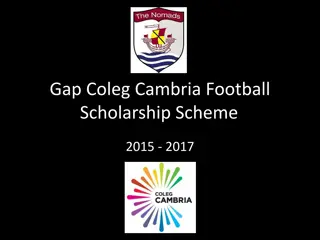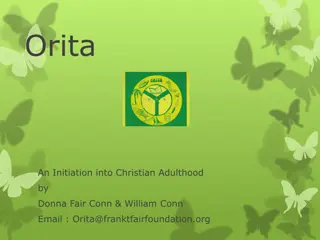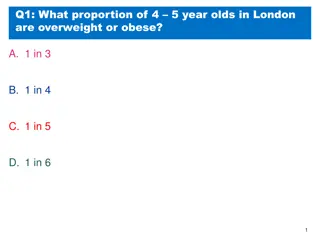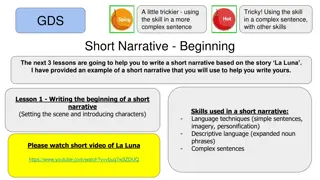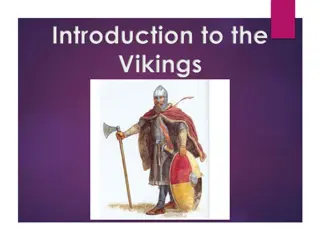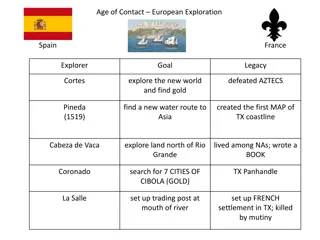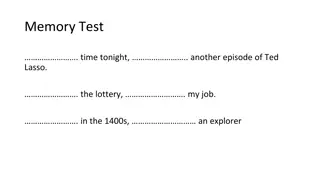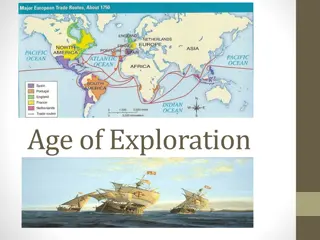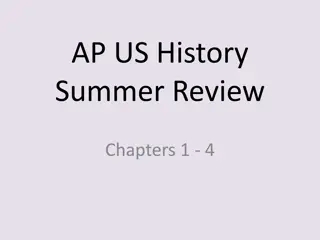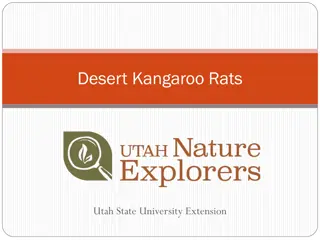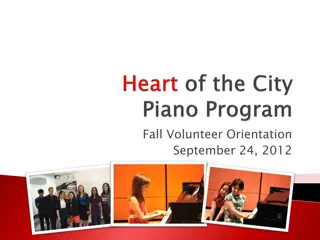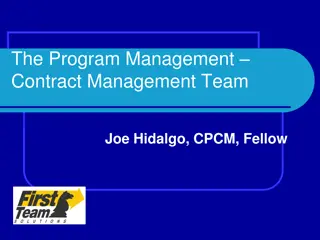UConn 4-H Explorers Program for 5-6 Year Olds
The UConn 4-H Explorers Program caters to the developmental needs of 5-6 year-olds through an activity-based approach that values cooperative learning, community involvement, and ongoing relationships with caring adults. The program focuses on research-based youth development theories and offers training for leaders, emphasizing inclusivity and personalized learning experiences. Starting a 4-H Explorers Club involves engaging with the county 4-H office, becoming a registered volunteer, attending training sessions, and recruiting members. Guidelines ensure that Explorers participate in age-appropriate activities and maintain a separate identity within the broader 4-H community. Curriculum resources such as The Big Book of 4-H Cloverbud Activities and UConn 4-H Explorers website content support the program's educational objectives.
Download Presentation

Please find below an Image/Link to download the presentation.
The content on the website is provided AS IS for your information and personal use only. It may not be sold, licensed, or shared on other websites without obtaining consent from the author. Download presentation by click this link. If you encounter any issues during the download, it is possible that the publisher has removed the file from their server.
E N D
Presentation Transcript
UConn 4-H Explorers Program 4-H for 5-6 year olds
Philosophy The development of the UConn 4-H Explorers Program responded to a need for a comprehensive, age-appropriate 4-H program for 5 and 6 year-olds. Explorers engage in 4-H through an activity based program that: Values cooperative learning. Views 5-6 year-olds in the context of family and community. Is dynamic, flexible, open, and accessible to youth through a variety of delivery modes. Values ongoing relationships between youth and caring adults, and older youth. Is based on research in the areas of youth development, educational theory, and relevant subject matter. Provides training on child development, educational methods, and subject matter content for Leaders working with the 4-H Explorers.
Steps to Starting Up a 4-H Explorers Club Contact your county 4-H Office to get information on becoming a UConn 4-H Volunteer. Let them know you re interested in starting an Explorers Club. Meet with your county 4-H Extension Educator to review your goals, go over 4- H paperwork, the application process and answer any questions you may have. Your county person can also help you with enrolling through the on-line 4-H enrollment system. Become a Registered 4-H Volunteer (by completing the volunteer application process with your county extension office). Attend a 4-H Explorers volunteer training. Begin recruiting members. 4-H welcomes all youth regardless of socioeconomic level, race, religion, sex, handicap, or national origin. Invite interested parents/caregivers to an informational meeting and review your expectations/plans for your club.
Guidelines 4-H Explorers Are at least 5 years old as old Jan. 1 of the current 4-H year. Enroll in the online 4-H enrollment system annually. Are enrolled in UConn 4-H: their default project is UConn Explorers. Every 4-H Explorer Club is identified as an Explorer Club in their club name (i.e. Cabritos Explorers or Litchfield Explorers 4-H Club) Engage in an activity-based program (short experiences in an eclectic, fun, and cooperative approach to learning). Are not mini-4-H ers. They engage in a specific program focused on the development of 5-6 year-olds. When appropriate, 7 year-old youth (and special needs children) can continue to enroll as an Explorer. Curriculum is provided to Explorers Leaders. Engage in county and state activities (including 4-H Fairs) through cooperation-based methods, not through competition. UConn 4-H Explorers at the Fair is a curriculum available to all 4-H Explorers Leaders. Contact your county educator to see how Explorers participate in your fair. Clubs are separate from clubs serving 7-19 year-old youth. They have their own Leaders, and 4-H teens may assist in leadership. Clubs may choose whether or not to include an Explorers group. Volunteers receive orientation and training through the UConn 4-H program. Use the UConn 4-H Explorers Activity Summary (individually or collectively).
Curriculum The Big Book of 4-H Cloverbud Activities, Ohio State University 4-H Funworks, University of Minnesota UConn 4-H Explorers At the Fair UConn 4-H Explorers Activity Summary Each UConn 4-H Explorer Club will receive a copy of The Big Book of 4-H Cloverbud Activities from their county office. Other curricula are available on the UConn 4-H Explorers website: https://4- h.extension.uconn.edu/explorers/
Experiential Learning Experiential learning is the cornerstone of 4-H. It encompasses these steps: Do: Experience tell me about this? How did you get this to happen? What is happening? What changes do you see? Can you Reflect: Share & Process anything like that before? What? Were you surprised by anything? What do you think about that? Have you ever seen Apply: Generalize & Apply you do different next time? Can you think of something you ve seen before similar to this? How else can you use this? At home? School? What would
Ages and Stages *Each Child is unique and will mature in a unique way* Physical Development: Muscle Coordination is uneven and incomplete. Large muscles are easier to control than small. A period of slow, steady growth. May repeat an activity over and over to master it. In Your Club: Plan physical activity for each meeting. Provide activities that don t require perfection. Provide patient guidance and encouragement for fine motor activities. Introduce new skills one at a time.
Cognitive Development Asks questions and answers them in literal terms. Learning letters and words. Short interest span. Enormous curiosity and delight in discovery. Can do some abstract thinking, but learn best through active, concrete methods. In Your Club: Give instructions verbally and visually. Avoid paper and pencil activities that require reading. Provide a variety of mediums and materials for learning (manipulatives, glue, paint, etc.). Plan short activities with physical exercise in between. Plan activities that require sorting, organizing, or classifying.
Social Development Developing cooperative play. Prefer to work in small groups (2-3). May need to be first , best, and a bit bossy. Like being part of and around family. Attached to primary caregiver. Begin to internalize adult feelings toward religion, ethnic groups, and money. Can be unkind to others, but extremely sensitive to criticism of self. Can engage in group discussion. In Your Club: Avoid competition that select a winner or best person . Promote social activities that appreciate and emphasize diversity. Develop projects and activities that involve or focus on family. Help children develop friendships, through sharing, taking turns, following rules, being trustworthy (not tattling). Introduce the art of social graces .
Emotional Development Strong desire for affection, like adult attention. Get upset with changes in plans and routines. Say what they think. May claim a task is too hard rather than admit being scared. Cooperative and helpful; want to please. In Your Club: Provide many encouraging words for effort. Provide many opportunities for adult interaction with children. Involve them in doing things for others. Be sensitive when teaching a new concept or skill that a child may resist. Break down into small steps and reinforce at each step. Provide meaningful, real ways to help, such as setting up for an activity.
Planning and Implementing Have space to be active and work freely. Be prepared with supplies- including extras for those youth who finish early! (this is where the 4-H Funworks come in handy!) Maintain a supportive atmosphere. Always make time to talk about what happened, providing positive feedback and recognition to each individual. Keep Adult/Child ration to 1/6 or less whenever possible. Use only the provided UConn 4-H Explorers curriculum choices. We know Pinterest is seductive, please resist! Share responsibilities with other adults and teen assistants, planning ahead of time so everyone is prepared.
Suggested Meeting Outline Welcome Pledge of Allegiance and 4-H Pledge Learning Activity Recreational Activity Refreshment Learning Activity Reflection A planning worksheet is available on the UConn 4-H Explorers website !
A Successful Explorers Meeting The messier, the better. Short & quick. Active & action-oriented Outdoors works well. Hands-on. If you can eat it at the end that s all the better. Supervision ratio is key- keep it small. Limit the range of choices to a few. Gooey is good.
Families are Important Families are a vital part of 5-6 year-olds lives. We want them to be a part of their 4-H experience as well. Parents can: Assist with transportation, help with activities, special events, and/or prepare refreshments. Praise all club members. Discuss with the 4-H members what they learned and encourage skills. This also encourages the members to enjoy and like their activities. Provide strategies in working with their youth, and also gain understanding of 4-H, parenting, and this age group. Feel pride in the accomplishments of their child. Many parents/caregivers become 4-H volunteers.
Cooperative Learning Cooperative learning is the best technique for the Explorers age group. While it takes longer to work in groups, it is especially effective in developing social skills. Leader acts as facilitator and should practice overcoming the tendency to step in and manage the small groups. 4-H members learn from each other. Guard against one or two members assuming all responsibility. Working together forms the basis for friendships, families, careers, and communities.
Positive Learning and Group Management Children misbehave for many reasons, but most commonly because: A need for belonging, independence, mastery, or generosity is not being met. They don t know what is expected. They haven t learned what is appropriate in the given situation. They forget what to do. Guide children by: Focusing on do s instead of don ts. Building feeling of confidence. Giving choices. Giving the security of limits. Listening to yourself and the child. Setting a good example. Showing your concern in ways a child can understand.
Doing this is more effective than doing this State what you want them to do. Give reasons and explanations. I want you to sit in the chair. Keep the sand down in the box. Ride around Mike and the toy trucks. Don t stand on the chair. Don t throw sand. Don t bump into Mike. You need to sit down and wear your seatbelt in the car because if I stop suddenly, you may bump your head. Don t stand on the seat. Give simple but specific directions. You need to clean up now. Put paper on the shelf and crayons in the drawer. Take care of this mess. Make appropriate physical contact in guiding the child. Lightly touch the child s arm. Kneel or sit down at their level. Look the child in the eyes when talking to him/her. Reflect the child s feeling. You re really angry. Do you want to tell me why you re angry? Respect the child s individuality; do not compare to others. What vibrant colors you have in your pictures, Paula. Allow them time. In five minutes you ll need to clean up because it is almost time to go home. Don t yell at them from across the room. Don t hit Carrie again. Robert s picture looks neater than yours. Clean up right now!
Positive Learning and Group Management Here are strategies for Leaders to ensure all participants are supported in a positive, pro-active manner: Plan Ahead Avoid Idle Time Keep Rules Simple Make Expectations Clear Reduce Distractions and Disruptions Don t Wait for a Crisis Be Clear and Specific in Communicating Respect All Participants and Their Choices Be Fair Maintain Dignity Involve Parents/Caregivers
Including Youth with Disabilities Remembering some disabilities are invisible and know no boundaries for race, ethnicity, and economic status, here are some questions to ask yourself to anticipate some situations: Did you limit the need for reading, writing, and/or math? Is information for families ready to hand out instead of youth writing it down? Have you broken down activities involving fine motor skills to make them easier? Do you provide directions one step at a time? Do you include games to keep kids moving? Do you check to make sure youth know what they are supposed to be doing? Do you allow youth to choose not to participate in a specific activity? Do you follow routines? Have you gotten to know your youth personally? Do you encourage fun activities and small group activities to help build friendships?
Activity Summary and Recognition The 4-H Explorers Activity Summary is an age-appropriate way to introduce 4-H Recordkeeping. Each child can keep their own record, worked on independently with a caregiver, or within the club. If the club works together to create one Activity Record, it can be copied so each 4-H er has the record.
Activity Record and Recognition Project experiences should include incentives, awards, and recognition. In the Explorers program, achieving through competition is not a method used in recognition. Individualistic competition (i.e. the Danish System) takes away the opportunity for 5-6 year-olds to develop important social skills. Cooperative learning focuses on the process and not the end product. The absence of competition allows children to enjoy the experience of playing and learning. Instead Explorers can be recognized through: Certificates. Participation Ribbons. Non-competitive exhibition to show off what they have learned. A party or special treat when the group achieves a goal. Your county 4-H office can help you with these awards.
Transitioning When an Explorers Club is a part of a community club, this transition may be simple and a natural progression. For stand-alone Explorers Clubs, there may not be much prior knowledge of community clubs and how the programs differ. Hold a Graduation Ceremony. Visit a community club meeting. Afterward, practice making a motion and voting. Keep a 4-H Clover visible at all meetings, so youth identify as 4-H ers members. A community club can plan a party or activity for an Explorers club. Develop a 4-H Friend mentoring relationship with an older 4-H er member that includes (and extends) the UConn 4-H Fair activity. Have a county informational meeting night with parents and leaders from both programs. Talk to your county 4-H coordinator about incorporating a graduation walk into 4-H Recognition Night.
FAQs Can a leader for a 7-19 age club be a leader for an Explorer Club? Yes, if the meetings are not held at the same time, or there is another Leader working with the other club when meetings are concurrent. How do I get supplies? You may charge dues for your club, which support costs of supplies and/or snacks. You can ask each family to make an Explorer s Kit with scissors, markers, etc. for each child to bring with them. Families can take turns with snacks or supplies. Check with your 4-H office, we may have supplies you can use or borrow. Should we serve snack? It depends on how long (and when) your meeting is. A suggestion is to use a nutrition lesson for snack time- be creative! For example, if you are doing a lesson on bugs, you can make ants on a log, or grape and pretzel spiders. Is Community Service required for Explorers? Community Service is a large part of the 4-H experience, and one Explorers should participate in. There are many age-appropriate ways for Explorers to care for their community, and this is an opportunity for them to pair up with a 7-19 age club.
Adapted from University of Florida IFAS Extension: Florida 4-H Cloverbuds Guide for Staff and Volunteers Iowa State University Extension & Outreach: Clover Kids Toolbox University of Illinois Extension: Illinois 4-H Cloverbud Leader Guide Montana State University Extension: 4-H Cloverbuds Agent and Volunteer Leader Guide
To conclude your training! Take the UConn 4-H Explorers Leader Quiz HERE. Your County Educator will contact you to help with next steps in setting up your UConn 4-H Explorers Club. Congratulations! Have fun and take pride in being an Explorers Leader.


